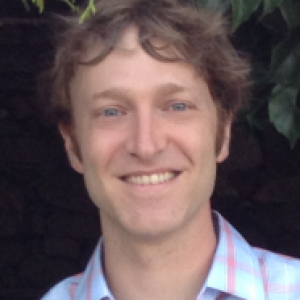Race. Justice. Police Reform.
Few issues these days are the subject of more intense scrutiny, debate and passionate calls for change.
And that’s why Robert Samet chose to make them the focus of a course he taught in fall 2020. “Race, Justice and Police Reform” is part of Union’s new suite of Minerva Online classes. These interdisciplinary courses are designed to help students understand the complexity of, and develop solutions to, large-scale societal challenges.
“At the suggestion of President David Harris, the curriculum included a case study of police reform in Schenectady,” said Samet, an associate professor of anthropology. “This fit nicely with the course’s overarching objective – to address the longstanding history of racialized policing in the United States, and the current debates about police reform, in a way that provided students a nuanced, policy-relevant perspective.”
And the case study – which brought the local community right into the classroom – certainly did that.
“Students virtually observed over 16 hours of community meetings conducted under the auspices of the Schenectady Police Reform and Reinvention Collaborative (SPRRC),” Samet said.
The SPRRC was formed in summer 2020 in response to Gov. Andrew Cuomo’s executive order No. 203, which denounced racially biased law enforcement and instructed all police departments in New York State to “address any racial bias and disproportionate policing of communities of color.”
“These meetings acted as an information-gathering arm of the task force and they provided a forum for recommendations for reform,” Samet explained. “Students took notes on all nine scheduled meetings and created verbatim transcripts, which provided the basis for their final projects.”
“Each student wrote a letter to the SPRRC task force that drew on a wealth of empirical data to describe what they observed and to make recommendations going forward.”
Their recommendations coalesced around three themes.
Theme 1 focused on improving transparency and accountability to the public by a) strengthening the Civilian Review Board; b) stopping the obstruction of the release of police officers’ disciplinary records; and c) substantively responding to reform demands issued by local activism group All of Us.
“The community has the perception that complaints they make will not be addressed and handled in a way they deserve if they first go to the police instead of an outside agency,” Melanie Klugman ’23, a psychology major, wrote in her letter to the SPRRC. “A great way to combat this is to have complaints go directly to a civilian review board, but one that has real power to address police misconduct.”
“Police must be transparent in their practices and in holding themselves accountable for their actions,” Samhita Bheemireddy ’23, a chemistry and anthropology interdepartmental major, wrote in her letter. “Granting your citizens access to public documents, which are public for a reason, is a critical step if you truly want to develop trust and confidence.”
Theme 2 focused on addressing racial bias within the Schenectady Police Department. Students appreciated the supportive sentiments Chief Eric Clifford ’94 has expressed in tackling the issue. They recommended a) providing anti-racism training to officers and b) improving the culture of policing by exploring ways to foster a community “guardian mindset” among officers.
Theme 3 sought to transform Schenectady’s approach to public safety by a) migrating responsibility for mental health calls away from officers to mental health professionals. Recognizing that demands on officers often go beyond what they are trained to respond to, students also recommended (b) redefining public safety. This would enable police to focus more narrowly on crime so that other concerns – like mental health, addiction, homelessness, domestic disputes and evictions – can be handled by experts in those areas.
“The most rewarding part of this was the opportunity to learn alongside students. Expanding our understanding of police reform was something I think all of us found immensely important,” Samet said. “These are difficult and polarizing times. Trying to build trust on sensitive topics is difficult even in the best of the times.”
“Doing it in a virtual format made it all the more challenging. That said, the students were incredible,” he continued. “I’ve never worked with a more generous, open and patient group of students.”



